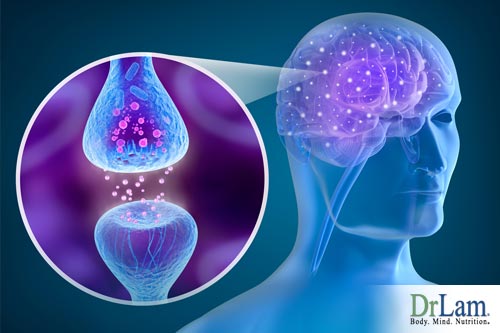 Warning signs on the labels of tobacco products indicate they are injurious to health. Even e-cigarettes may contain harmful toxins. But with new studies, benefits of nicotine have come to light. It appears that nicotine, when given isolated from tobacco, can protect the brain from aging. It also cuts down the risk of Alzheimer’s and Parkinson’s disease. Some of these surprising benefits can explain why some seem to need nicotine more than others, and ways to get these benefits without smoking.
Warning signs on the labels of tobacco products indicate they are injurious to health. Even e-cigarettes may contain harmful toxins. But with new studies, benefits of nicotine have come to light. It appears that nicotine, when given isolated from tobacco, can protect the brain from aging. It also cuts down the risk of Alzheimer’s and Parkinson’s disease. Some of these surprising benefits can explain why some seem to need nicotine more than others, and ways to get these benefits without smoking.
Nicotine, a powerful nootropic, is a natural liquid alkaloid found in several plants of the nightshade family. Potatoes, tomatoes, eggplants, and tobacco all contain nicotine. Tobacco has the highest nicotine content, making it capable of a significant effect on living beings.
When you think of nicotine, the first thing that comes to mind is cigarettes and tobacco products. Many people assume that nicotine is a harmful ingredient in tobacco products, which are known to cause several serious illnesses including cancer.
However, nicotine in itself is not harmful and has been associated with several health benefits. In fact, nicotine is the least harmful among the substances found in cigarettes. Nicotine, when used independently in the form of a standalone patch, can help cognitive function without requiring exposure to any of the dangerous toxins found in cigarettes.
Due to nicotine’s ability to enhance cognition, many of the people resorting to cigarettes or nicotine patches do so as a means to stay focused and calm during demanding work.
It appears that using nicotine can enhance cognitive capacity and offer neuroprotection, some scientific evidence suggests. For example, using nicotine is known to help people in solving complex calculations, considering analytical problems, producing technical writing, and taking exams.
Cigarettes contain tobacco and several other harmful chemicals which actually make this product hazardous to health. While nicotine is considered a highly addictive drug, there is a lack of significant evidence to support the idea that it is carcinogenic. Cancer has been associated with nicotine primarily because it is present in cigarettes. Studies suggest that the various harmful chemicals in tobacco smoke are what makes smoking so hazardous to health. Hence smoking should never be seen as a healthy means of nicotine intake.
Ursula Winzer-Serhan, an associate professor at the Texas A&M College of Medicine and her team conducted research using nicotine on animal models to observe the effect of the drug. Their research was published in the Open Access Journal of Toxicology.
During the study, nicotine was added to the animal’s drinking water in concentrations of low, medium, and heavy. The animal models were divided into three control groups based on the level of nicotine concentration they received. One control group did not receive nicotine. The groups which received the low and medium nicotine doses did not show any level of the drug in their blood. Likewise, the animals did not experience any changes in body weight, food intake, or brain receptors related to the drug.
 In contrast, the group that received the highest concentration of nicotine gained less weight, ate less, and had an increase in brain receptors, showing that higher doses of nicotine reach the brain and impact behavior. However, high doses of nicotine did not result in any behavioral side effects such as anxiety, which researchers had anticipated. Instead, a high concentration of the drug appeared to reduce anxiety levels.
In contrast, the group that received the highest concentration of nicotine gained less weight, ate less, and had an increase in brain receptors, showing that higher doses of nicotine reach the brain and impact behavior. However, high doses of nicotine did not result in any behavioral side effects such as anxiety, which researchers had anticipated. Instead, a high concentration of the drug appeared to reduce anxiety levels.
The result from the research indicates that nicotine can prevent weight gain in aging animals. It has not yet been determined whether a lower body mass index reduces degeneration of the brain.
Clinical trials make it clear that nicotine possesses the ability to suppress appetite. Further study is required to explore more potential benefits of nicotine.
However, Winzer-Serhan cautioned against smoking and made it clear that nicotine in this form has serious side effects which outweigh its benefits. She also urged people to stay away from nicotine products. Though the clinical results were intriguing, further trials are required to understand how nicotine affects behavioral changes.
Thus far, present clinical trials don’t prove that nicotine is a safe drug. Since the benefits of nicotine do not outweigh its potential risks, especially children and adolescents are strongly advised to stay away from this drug.
Nicotine promotes wakefulness, alertness, motivation, and creativity. Further, nicotine has proven beneficial in several health conditions including dementia, depression, anxiety disorders, ADHD, Parkinson’s, and Alzheimer’s disease thus bringing this drug under the scope of large-scale research.
The following are some of the potential benefits of this nootropic drug and its associated effect on health:

These benefits of nicotine are observed only when the drug is taken alone. Smoking should in no way be seen as a means to access these benefits of nicotine as it has major damaging effects on health. In that form, it can cause more harm than good.
Many people smoke tobacco as a way to relieve stress. While this is not a great choice for health, it does point to an underlying need to address the stress that is reinforcing the craving for tobacco.
Constant stress can lead to exhaustion. Feeling fatigued almost everyday, along with symptoms of insomnia, brain fog, anxiety, reduced concentration, brain fog, difficulty in waking up, low energy levels, fatty and salty food cravings, difficulty dealing with stress, irritability, and constipation can point to Adrenal Fatigue Syndrome (AFS).
During stress, the HPA axis and NeuroEndoMetabolic (NEM) Stress Response activate hormonal systems to protect your body from excess stress. Several major systems of the body make up the NEM system. These include the adrenal glands, which secrete several hormones under stress including cortisol to help deal with the stress. But when the stress is constant, the adrenals need to secrete more cortisol to handle it. Over a long enough period, the adrenals get overburdened and lose their ability to secrete adequate cortisol. Consequently, your body finds it difficult to address stressful situations.
Though smoking is sometimes used to deal with stress, and in spite of the various benefits of nicotine, both smoking and nicotine alone are not recommended for those with adrenal fatigue. If you have been under chronic stress and may have adrenal fatigue issues, it is advisable to avoid nicotine.
There are several ways nicotine can worsen AFS symptoms.
Stimulants interfere with the natural functioning of your body. In high doses, nicotine can have a sedative and relaxant effect. However, in low doses, nicotine is stimulatory. This effect acts directly on your central nervous system triggering an excitatory state, similar to the state of a body under stress.
In this stimulated state, there is an overproduction of the excitatory neurotransmitters norepinephrine, epinephrine, serotonin, and dopamine. As a result, your mind and body are pushed into a state of arousal. With the rise in neurotransmitters, the body’s fatigue messages are interrupted on the way to the brain, making it difficult for you to get rest when you need it. Simultaneously, your NEM stress response gets triggered to fight stress. The adrenals start to secrete cortisol hormones and your body enters a “fight or flight” state. If this happens too often, or if you are already under chronic stress, the adrenals are overworked and the intense effect of nicotine may result in adrenal exhaustion.
 Insomnia is a common symptom in AFS. Many of those with AFS have excess cortisol which interferes with sleep patterns and prevents them from falling asleep. Adequate sleep plays a vital role in adrenal fatigue restoration. The stimulating effect of nicotine increases cortisol levels and alertness, which can be bad for those with AFS. Nicotine activates your HPA axis which prompts your adrenals to pump excess cortisol, increasing AFS symptoms.
Insomnia is a common symptom in AFS. Many of those with AFS have excess cortisol which interferes with sleep patterns and prevents them from falling asleep. Adequate sleep plays a vital role in adrenal fatigue restoration. The stimulating effect of nicotine increases cortisol levels and alertness, which can be bad for those with AFS. Nicotine activates your HPA axis which prompts your adrenals to pump excess cortisol, increasing AFS symptoms.
Nicotine prompts your liver to release sugar which increases your blood sugar levels. The pancreas gets alerted and secretes insulin to reduce the sugar level. This, in turn, causes spikes in blood sugar levels, excess insulin production, and cortisol secretion. Ultimately your adrenals get burn out in the process, and it can also cause other issues if you already have blood sugar problems.
Nicotine, being a stimulant, is highly addictive and acts directly on the brain. Nicotine modifies the neural pathways which respond to anxiety and stress. Due to its stimulatory effects, nicotine increases alpha waves in your brain. The resulting experience is a relaxed and stress-free feeling. But this relaxed feeling is temporary.
Soon, cravings and withdrawal symptoms occur. Though the drug can help with feelings of anxiety, depending on various factors this effect can vary widely from person to person. Everyone does not experience an anxiety-reducing effect with nicotine. The drug may actually worsen anxiety in some people. Moreover, with time, the dose of nicotine needs to be increased to gain the desired result. You tend to become more addicted to the substance. Gradually your body ceases to respond to the drug.
Nicotine, being a potent stimulant working on the brain, affects the cortisol levels, interferes with sleep, causes spikes in blood sugar, and can increase anxiety. Hence people with adrenal fatigue should not resort to nicotine as a means to alleviate stress and exhaustion. The drug can also interfere with the adrenal restoration process delaying healing.
According to a survey, over 68 percent of smokers want to quit smoking due to its health hazards. But they face nicotine withdrawal symptoms, which make it hard to quit.
Withdrawal symptoms are distressing physical symptoms which arise when you give up any addictive substance. Usually, nicotine withdrawal symptoms appear within 30 min after your last tobacco use.
Symptoms largely depend on the addiction level. Some nicotine withdrawal symptoms include nausea, headache, intense nicotine craving, insomnia, irritability, anxiety, weight gain, and depression. The symptoms peak within three days and often disappear within two weeks. However, some may experience symptoms for several months.
Withdrawal symptoms of nicotine are mostly similar to that of AFS. Nicotine withdrawal can cause stress, depression, low energy level, headache, irritation, fatigue, and food cravings leading to weight gain. Once people get addicted to nicotine, they continue with the stimulant to avoid the pain of withdrawal symptoms.
There are numerous over the counter medications such as nasal sprays and inhalers that help minimize nicotine withdrawal symptoms. Do not abruptly stop if you have been smoking for some time. Joining support groups can prove beneficial. Identify feelings and times in your day that trigger smoking and avoid them.
When the withdrawal symptoms stop, it is not unusual to experience long-term tobacco cravings. The main challenge here is to curb these cravings to ensure success in the long-term. Many people have successfully managed cravings by practicing breathing exercises, keeping physically active, and avoiding triggers.
 Cigarettes contain tobacco which is high in nicotine. Smoking is linked with serious diseases including cancer and is responsible for millions of death worldwide. Hence nicotine is perceived to be carcinogenic. But the underlying fact is that it is not nicotine but the toxins and chemicals in cigarettes which harm your health.
Cigarettes contain tobacco which is high in nicotine. Smoking is linked with serious diseases including cancer and is responsible for millions of death worldwide. Hence nicotine is perceived to be carcinogenic. But the underlying fact is that it is not nicotine but the toxins and chemicals in cigarettes which harm your health.
When taken in its pure form, the benefits of nicotine have the ability to deliver therapeutic value. Clinical trials suggest that nicotine can reduce appetite and weight gain, increase brain receptors, and decrease the risk of Alzheimer’s and Parkinson’s disease. Nicotine has also proven beneficial for health conditions including ADHD, depression, anxiety disorders, and dementia. It also promotes alertness, wakefulness, a healthy gut, and acts as a neuroprotective agent. These surprising benefits of nicotine have drawn attention to this nootropic drug for large-scale research.
Many people depend on nicotine or smoking to cope with stress and anxiety. However, despite the benefits of nicotine, it is a powerful stimulant that is highly addictive and can do more harm than good. It acts directly on the brain which can trigger adrenal fatigue symptoms. Prolonged nicotine exposure can increase cortisol levels, disrupt sleep, cause blood sugar fluctuations, and increase anxiety and depression. Further, the drug can also over activate your HPA axis and delay your adrenal fatigue recovery process. Hence people with AFS should refrain from using nicotine to gain relief from stress and fatigue.

Experience a tranquil mind, conquer nicotine triggers, and find your balance
The stimulatory effects of nicotine work directly on the central nervous system. Nicotine exposure increases the alpha waves in your brain inducing a relaxed feeling. Tobacco found in cigarettes contains nicotine. Hence, many people resort to smoking as a means to gain relief from stress and depression. However, this relaxed feeling is temporary. With time, nicotine can become an addiction. Nicotine withdrawal symptoms increase anxiety, insomnia, irritability, and depression. Thus, despite several benefits of nicotine, prolonged exposure to the drug can actually worsen depression.